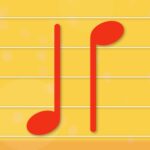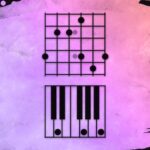Build Your Skills
Learn music theory Train your ears Track your tempoRead Now
Get the Newsletter
Categories
- | BeatMirror (10)
- | HearEQ (11)
- | Waay (22)
- | WaayFinder (1)
- Audio (16)
- For musicians (34)
- Guitar (2)
- Music theory (15)
- News (42)
- Startup stories (2)
- Tutorial (4)
Keep in Touch
About Ten Kettles
We love music, we love learning, and we love building brand new things. We are Ten Kettles.
Read more >-
June 23, 2015
What’s a scale—and why should you care?
Scales are amazing. Why? Because they tell you what notes sound good together. This is important, because a lot of notes just don’t fit together at all. If we play a bunch of them at random, say E, A♭, D♯, and F, there’s a good chance we won’t like how they sound:
But if we use notes from a scale instead, say the E major scale, then we’d get something that has a much better chance of sounding good. The notes in this scale are E F♯ G♯ A B C♯ D♯ (we’ll show you how to build scales in Waay). So, let’s take four notes from that scale: E, G♯, F♯, and A. Here’s what that sounds like:
Better, right? That’s what a scale does, it brings notes together that sound good. OK, now hum something that sounds good to you. Maybe it’s a song you know, or maybe it’s something you just made up—doesn’t matter. Seriously, give it a go. Got something that sounds OK? Great. As I’m no magician, I have no idea what you hummed, but I’ll still bet that all those notes belonged to a scale. We know what scales sound like just from listening to music our whole lives—even if we’ve never hear the word “scale” before.
Why? Because that’s how applied music theory works. It looks at patterns in music—stuff that usually works, stuff that usually doesn’t—and does its best to extract some lessons we can use when writing or playing music. And it’s so great for songwriters to learn. Here are just a few areas where applied music theory can help your songwriting and improvisation:
- matching chords to your melodies and vice-versa
- finding a new progression for other sections of the song (like the chorus)
- writing vocal harmonies (another melody that can be sung at the same time)
- improvising solos and chord progressions
- writing complementary riffs for guitar and bass (or any other set of instruments)
At the end of the day, applied music theory is a tool that helps you bring your musical vision to reality. We care about music theory deeply, because we believe you should be spending your time writing songs, not flipping through chord charts trying dozens of chords to see what fits. Or worse, compromising on your musical vision because you’re not quite sure how to make it happen. That’s why we built “Waay: Music theory that matters” and why we write about applied music theory here.
Music theory is about writing songs—not exams in school—so pick up your instrument and write some great music. (Or, in the case of piano, congratulate yourself on picking up an entire piano.)



Comments